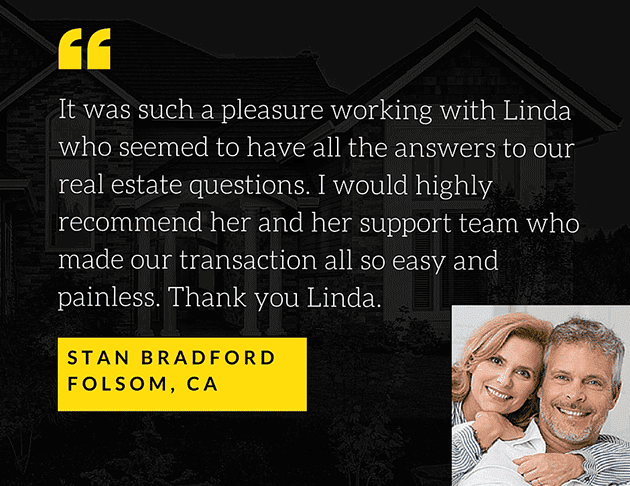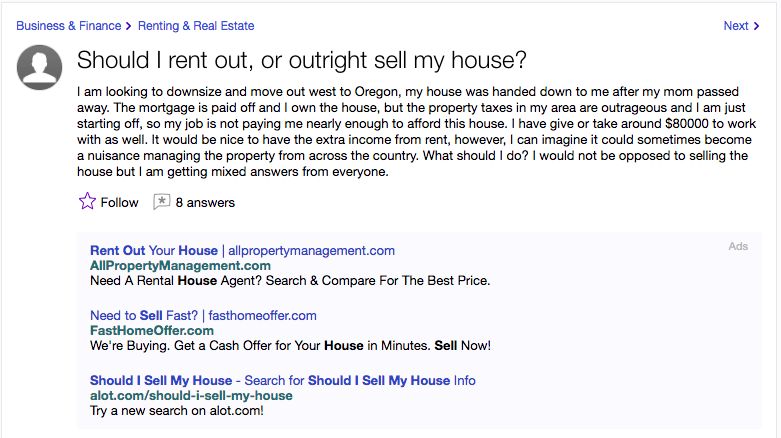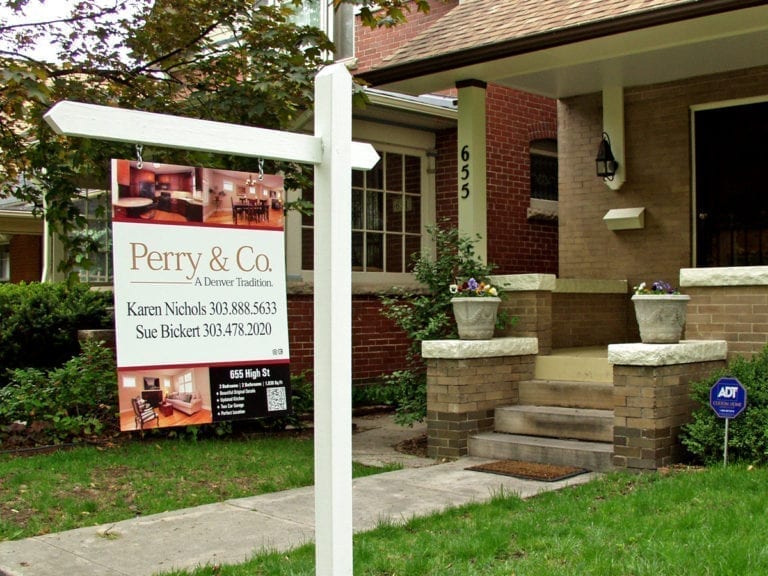As a realtor, for the most part, your success and earnings are directly proportionate to how many properties you list and how many deals you close.
There’s other factors too, like the price of your listings. But closing deals is the main thing. Because if no deals are done, you’ve got no income coming your way.
So for the sake of this article, we’ll focus on realtor advertising strategies to get more people interested in you as a realtor and the properties you’ve got listed… so you can both increase the number of deals you close AND your income.
By the end, you’ll have at least two or three solid advertising ideas to increase the number of buyers and sellers who come to you within your specific niche, helping you reach your goals for the quarter and the year.
This list is by no means 100% exhaustive, but it is pretty lengthy and the methods have been tested for stellar results.
Pssst…. You really, really don’t want to miss out on #12.
1. Create a Listing on Zillow
Before you slam me for being too obvious, let me just say this: 92% of people who want to buy a house use the internet to help them in their preliminary shopping.
Which means that even if people do eventually come to you for help finding the right home, they’re using the internet first.
Plus, since Zillow’s kind of become the default go-to for people like me (read: your typical home buyer) who want to know what kind of homes are available in the area and the realistic price ranges, it’s pretty much a must-do item that should be at the very top of your list every time you get a house to sell.
And here’s some numbers that’ll blow your mind: the site itself gets over 130 million visits per month. That’s like over 40% of the entire population of the United States visiting every single month. It’s a big deal.
So if you’re already using Zillow, give yourself a pat on the back.
If not, drop what you’re doing right now (as in, stop reading this article), and get your listings up there ASAP.
2. Use Door Hangers
At this point in my life, I live in an apartment that I rent.
That won’t always be the case, but it floors me how many post card mailers I get offering me help to sell my home… with a clearly-labeled apartment address on the front.
This is an example of a realtor wasting his money on the wrong target audience. (So don’t do that.)
And while direct mail has proven itself to be a valuable advertising method, consider bypassing the mail man & automatic addressing systems altogether and just delivering your message directly to the homeowners themselves.
Yeah, it takes a little more man power, but how often to you read the junk postcards that come in the mail?
Almost never, right?
I know mine go directly to the recycle bin.
But how often do you read the flyers that someone’s left hanging on your door?
Almost always, yeah?
If you want more buyers in your market, you could focus these door hangers on apartment complexes with high-turnover rates and with lots of millennials living there. (They’re the ones entering the home-buying market now, after all.)
If you want more sellers, put your door hangers up on residential neighborhoods.
You don’t know who’s in the market to buy or sell, so most of the door hangers will go unanswered.
But for people who want to or are thinking about it in the near future, they’ll be much more likely to remember you and get in touch with you instead of your competition… giving you more possibilities to earn a commission from.
(And here’s a hint: If you’re not currently working with your “ideal” properties or buyers, use the door hanger strategy in neighborhoods where they live. It’ll get you “to the top” a lot quicker than other methods of climbing the ladder.)
3. Create Testimonial-Based Ads
As a realtor who works day-in and day-out with the intricacies of the real estate market, it’s hard to imagine people who don’t have any basic knowledge of it.
But for the average buyer… whether it’s a millennial buying his first starter home or a business owner looking for her first small office space downtown… it’s mostly above their heads.
Sure, they probably have some knowledge of loans out of financial necessity, but the intricacies of how things work are a large mystery.
Which is why advertising with realtor-speak will often be a big turn-off to potential clients.
You could be the best realtor in the area, say the best things, but as humans, we’re inherently suspicious of things we don’t understand.
But something about the real estate market your target market does understand?
How other people feel about working with you.
By asking your previous clients who’ve had a great buying or selling experience to give you a short testimonial, you’re nearly guaranteed to get advertising material that’s in prospect-friendly wording… and evoke the kinds of feelings your prospects can’t say no to.
You can use these testimonials to advertise however you choose: in internet ads, newspaper ads, mailers, or on business cards you leave laying around town.

Can you imagine something like this on your advertising materials? (Image from IDX Central.)
4. Give Free Advice on Internet Forums
I’ll admit: I’m a little biased towards this strategy as my favorite one, but only because I’ve seen how useful it is to both help people and to drive targeted traffic back to your website.
The idea behind this strategy is this:
As a realtor, you’ve got a ton of knowledge that can help buyers, sellers, renters, and landlords alike.
Depending on your specialty, search Google (or any other search engine) for keywords you think your target audience might type in when they need your help.
It’s not just about the moment they realize they need a realtor to help them either.
It could be homeowners who are trying to sell their houses themselves and are searching for certain answers out of frustration of things not going the way they planned.
It could be landlords who usually list the vacancies themselves looking for advice from other landlords on where to list for more inquiries or to find higher-quality tenants.
It could be business owners just starting their search for office space, and looking for generic information to make a plan to get started.
You get the idea.
When you search these terms in Google, chances are you’ll eventually come across some forums where people are asking questions that you have the perfect answers to. (Yahoo Answers, Quora, and Reddit are some really popular ones if you just want to cut to the chase and search there.)
And while the person you answer may not be the one to reach out to you for help, these forums get viewed by TONS of people everyday… and once your answer is up, it lives there forever.
So by putting up a thoughtful, genuinely helpful answer (not just “Get in touch, I’d love to help you!”), people will see your expertise and follow any invitation you give to learn even more back on your website.

Here’s a question on Yahoo Answers that could really benefit from quality, unbiased advice from someone in Oregon’s real estate industry.
5. Yard Signs
These are as old (if not older) than the book on realtor advertising. (You know, if there were “a book” on this.)
If you’ve got a listing in a highly trafficked area, you literally can’t go wrong with printing one of these and putting it out for all passers-by to see.
You never know who’s in the market for the kind of property you’ve got on hand… or who will give a word-of-mouth referral to your ideal customers based on a sign they saw while running errands.

Here’s a basic for sale sign that lets people passing by know that the house is available to buy. (Template from Signs.com)
Pro tip: Take your sign to the next level—and make your property way more desirable—by putting pictures of the inside of the property on the sign itself. Humans are super visual creatures, and this is an incredible way to increase desire.

See how this sign gives you a peek inside the home as well? (Photo from Fit Small Business)
6. Write Search-Specific Blog Posts
I’m going to advise this for local keywords only.
As a realtor with lots of other responsibilities on your hands, trying to compete with an enterprise-level website for broad-reaching keywords just doesn’t make sense.
It’s so much work, and for the most part, the vast majority of realtors only care about their local reach anyway… if someone three states over wants to sell a house through you, as much as you’d be flattered, it just won’t happen.
The “advertising” strategy here is free (it just involves your time), and can earn you search engine traffic for years to come.
Here’s what you do:
Go to Answer the Public and type in a keyword related to your niche of real estate along with your city name.
You’ll get a ton of results.
Pick the queries you can answer most easily, and write a blog post for them, with that exact search phrase as the title.
Optimize the rest of the post for basic SEO (I recommend using Yoast to help you do this), and try to get a few backlinks to the page… or at least post the link in places where interested people congregate online.
Works like a charm.
7. Network Marketing Groups
If there’s one phrase of useless career/networking advice I could stop hearing forever, it’d be “grow your network.”
I mean, I know it’s a good idea, but that piece of advice doesn’t tell you how to grow your network, what to do, what to focus on, or what the actual point of having a network is in the first place.
But you can cut to the chase of having a network and using that network to grow your realtor business a lot quicker if you join a network marketing group like BNI.
Within these groups, members are encouraged and incentivized to make referrals to others in the group, which can help you get access to your target market a lot faster—and via warm leads—than if you did a lot of cold advertising from behind your computer screen.
These groups usually have a paid membership, but most people who join swear that the fee is worth it.
8. Ad Retargeting
Imagine this: someone is property shopping online and they come across something they really like on your website.
They click around to view photos, read details about the property, and look at the Google Maps widget to get a better idea of the location.
But because they’re only at the first stages of the home-buying process, they click away and close your tab because they have eight more tabs open to check out.
They liked your listing, but its details soon got jumbled up with the details of the next three houses they looked at, so they forgot about yours.
Now imagine they’re browsing Facebook or checking out a website that hosts Google AdSense ads.
And right there in their sidebar is an image of the house they looked at on your website and loved so much.
Your house stays top-of-mind, and hopefully at some point (when they get a little more serious and actually want to view properties) they click through on your retargeting ad and get in touch with you to see the property.
Exactly how to setup a retargeting ad can get a little involved, so I’ll leave it to our dear friends at Facebook to explain exactly how they work with the videos on their Remarketing page.
9. Facebook Targeting Ads
Guys, Facebook’s ad targeting abilities are incredible.
And I’m in love with what it can do for realtors—especially for those of you dealing with residential properties.
Basically, Facebook lets you hand-pick who sees your ads (and can click on them) and who doesn’t see your ads based on the vast, vast information available in each person’s profile.
One of the most impressive things you can do to target potential new buyers, for example, is to show ads to people who’ve just moved to the area. Or people who’ve just got a new job at a local company who live elsewhere. Or couples who just got married.
It’s incredible. And in my opinion, not an opportunity to be passed up.
10. Incentivized Referrals
Here’s where you rely on word-of-mouth advertising, but where you let other people create the buzz for you… which is always a win, if you ask me.
Basically, you want to get in touch with people who have high-touches with others in your niche and who might be in the market to either buy or sell properties.
For a residential realtor, this list could look like:
- Banks where people open new accounts after moving to the area
- Marriage counselors for couples just getting married and moving in together
- Divorce lawyers for couples who will sell the house and split the value
- Funeral homes for families wanting to liquidate their loved one’s assets
- HR managers of large companies doing a lot of non-local hiring
You could do a referral fee of a few hundred dollars for each house that you sell, or give them a kickback for each qualified lead they send you, regardless of whether a deal happens or not.
They’ll love you for setting up this partnership because they get to help their customers on an even deeper level, and they get paid for it. It’s a win-win for everyone involved.
11. Give Your Ads a Millennial Twist
Believe it or not, millennials are the ones in the home-buying market now.
So especially if you specialize in starter homes, giving your advertising a millennial-friendly slant will serve you well.
According to Forbes, to market to Millennials, you need to make sure your messaging encompasses these six values:
- Social responsibility
- Worker’s rights & fair pay
- Protecting the environment
- Being a help, not a hinderance
- Tolerance
- Diversity
Not all of these values will directly correspond to the relationship between you and your millennial clients, but if you see an opportunity to latch on to some of them, doing so will definitely help you stand out in the millennial market.
12. Cold Call Expired FSBO Listings
Unless you’re in a severe seller’s market, FSBO (for sale by owner) listings usually don’t do as well as listings that have the power of an experienced realtor or realty firm behind them.
And because of this, a lot of them expire without ever actually selling the property.
Usually, the people who decide to do an FSBO listing do so with the best intentions—they’re ambitious and feel like the extra work will be worth the money saved in realtor fees.
You can find these listings all over the web… at ForSaleByOwner, Zillow, and the namesakes, FSBO.com.
When you reach out to the owners of the property, you can ask them what went wrong (or if they simply just decided not to sell), and offer some genuine advice to help them.
I wouldn’t make the initial contact all about the sales pitch, but instead about providing value.
For example, if they’ve decided not to sell, you could suggest renting. If they still really want to sell, you could give them a few suggestions of other places to make a listing.
Of course, there’s still a lot of work on them and they’ll probably feel a little defeated after their initial failure.
So when you prove yourself to be helpful, you can then mention advanced services you offer when you feel they’re ready to know more.
Pretty cool idea, isn’t it?
Your Assignment: Pick One & Go
Like I said in the section on Zillow, if you don’t have your listings online, make sure that’s the very first thing you do.
But if you’ve got that taken care of, which advertising strategy you choose next to grow your real estate business is up to you. Most likely, there was one strategy that really stuck out to you as something you’d really like to try, so go with that one.
To be honest though, you really can’t go wrong with any of these tactics—they’ll all help you close more deals.